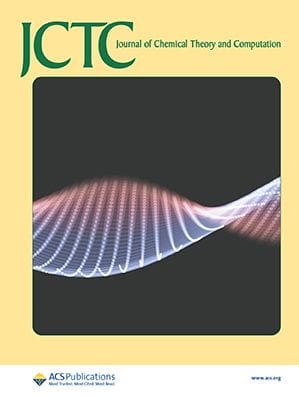This Special Issue will promote inspiring developments in theoretical and computational chemistry in Asia, including emerging areas such as quantum computing and machine learning. Submit your manuscript by April 30, 2025.

Theoretical and computational chemistry has a long tradition in many Asian countries, with pioneering contributions to many essential areas.
For example, scholars like Kenichi Fukui and others have made fundamental contributions to the development of theoretical frameworks and tools for the analysis of chemical reactivity and molecular properties in quantum chemistry
Swapan Ghosh and others have made pioneering contributions to the study of matter at a quantum level, including theory and numerical methods for chemical bonding and the development of coupled cluster methods.
In other areas, prominent examples include the development of 3D-RISM theory for solvation by Fumio Hirata and theories of protein folding and dynamics by Nobuhiro Go.
In recent years, theoretical and computational chemistry has continued to flourish in Asia, with exciting developments and applications that span all modern areas of theory and computations, including emerging areas such as quantum computing and machine learning. To further promote these inspiring developments, The Journal of Chemical Theory and Computation (JCTC) is organizing a Virtual Special Issue entitled “Developments of Theoretical and Computational Chemistry Methods in Asia.”
Topics include, but are not limited to:
- Novel theoretical and computational methods in the areas of electronic structure, statistical mechanics, classical and quantum molecular dynamics
- Methodologies motivated by cutting-edge applications in catalysis, biophysics, and materials science
Interested authors are invited to find information on manuscript types at the JCTC official site and submit their manuscripts by April 30, 2025. For more information on this Special Issue, read the associated Editorial.
Organizing Editors
Prof. Qiang Cui, Executive Editor, JCTC
Boston University, United States
Prof. Pratyush Tiwari, Associate Editor, JCTC
University of Maryland, United States
Prof. YiQin Gao, Associate Editor, JCTC
Peking University, China
Prof. Yuki Kurashige, Guest Editor
Kyoto University, Japan
Submission Information
We welcome submissions for this Special Issue through April 30, 2025. For more information on submission requirements, please visit the journal’s Author Guidelines page.
Accepted manuscripts for consideration in this Virtual Special Issue will include research articles, perspectives, and reviews.Papers accepted for publication for this Special Issue will be available ASAP (as soon as publishable) online as soon as they are accepted. After all submissions have been published, they will then be compiled online on a dedicated landing page to form the Special Issue. Manuscripts submitted for consideration will undergo the full rigorous peer review process expected from ACS journals.
How to Submit
- Log in to the ACS Publishing Center.
- Select the “Journals” tab.
- Search for Journal of Chemical Theory and Computation.
- Click "Submit."
- Select your manuscript type, and, under "Special Issue Selection," choose “Developments of Theoretical and Computational Chemistry Methods in Asia."
If you have any general questions regarding submission to this Special Issue, please contact eic@jctc.acs.org.

